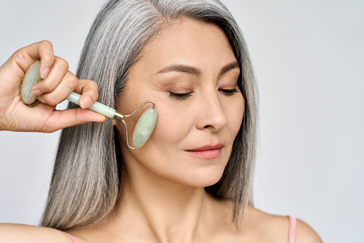Turmeric - A natural source of antioxidants and anti-inflammation
Posted by Mike Miryala on

Overview
For thousands of years, turmeric has been used as a traditional spice in Asia due to its delicious flavor.
However, the popularity of this compound has exploded over the past few years, which is partially attributed to scientific research that supports the health benefits of turmeric. More specifically, scientists contribute the positive health benefits of turmeric to its active ingredient, curcumin.
In this article, we will discuss the benefits of taking turmeric supplements and how it may help you with numerous health concerns.
The major benefits of turmeric
Analgesic effect
In a 2018 paper, researchers reviewed the scientific literature to analyze the analgesic effects of turmeric.
The results showed that taking turmeric supplementation reduces sensations and pain and tempers down inflammation, which is attributed to the potent action of curcumin.
At the end of the paper, researchers stated that “Although the mechanisms of pain mitigating effects are not very clear, there is compelling evidence proved that curcumin plays an essential role.”
Immune-optimizing properties
Finding new ways to optimize the function of your immune system is very effective at reducing the risk of catching deadly infections.
Turmeric showed impressive immune-modulating properties that boost the function of white blood cells to increase their efficiency at identifying and destroying foreign pathogens.
According to one study, turmeric helps maintain an equilibrium between the circulating proinflammatory and the anti-inflammatory compounds, which allows the immune system to neutralize all threats without wreaking havoc on your body’s own tissues.
As it seems, our grandmothers were correct to run to turmeric and ginger beverages whenever faced with an infection.
Balanced oxidative stress
The body has a complex intracellular system that’s responsible for producing reactive oxygen species (i.e., free radicals) that primarily target the structural integrity of microbes (e.g., bacteria, viruses, fungi).
Unfortunately, reactive oxygen species (ROS) have one serious flaw, which is their inability to distinguish microbes from your own cells.
In other words, the same mechanisms involved in destroying foreign pathogens can wreak havoc on your cells and organs.
To prevent this from happening, the cell recruits antioxidants obtained through dietary intake or synthesized internally.
The balance between ROS and antioxidants is strictly maintained to keep you healthy and disease-free.
However, this system is not perfect, which sometimes leads to an elevated number of ROS that cannot be neutralized by antioxidants; this condition is referred to as oxidative stress.
Based on years of experiments and clinical studies, researchers are certain of the major role that oxidative stress plays in a variety of medical conditions, including coronary artery disease, type 2 diabetes, neurodegenerative ailments (e.g., Alzheimer’s disease, Parkinson’s disease), and some types of cancer.
For this reason, scientists are constantly on the look for potential compounds with antioxidative properties, which brings us to turmeric.
Throughout several studies, turmeric was shown to be a powerful antioxidant that can neutralize free radicals inside the cell.
Additionally, turmeric can boost the function of other naturally-occurring antioxidant enzymes.
Improved cognition
Curcumin boosts the levels of brain-derived neurotrophic factor (BDNF), which is responsible for the process of neurogenesis in the central nervous system.
Up until recently, the vast majority of medical experts believed that neurons cannot regenerate after childhood. However, there is new evidence that suggests otherwise.
Today, researchers successfully identified BDNF as a major promoter of neurogenesis.
In fact, many studies found that this hormone is severely deficient in patients with neurodegenerative diseases, such as Alzheimer’s disease.
Moreover, patients with major depressive disorder who are not receiving appropriate treatment had low serum levels of BDNF.
Side effects of turmeric
Based on available research, the use of turmeric causes little to no side effects.
With that being said, consuming high doses of turmeric can lead to mild adverse effects, such as skin rashes, digestive problems (e.g., diarrhea, nausea, vomiting), and headaches.
Takeaway message
Turmeric is an excellent compound that offers a myriad of health benefits, which include most organ systems.
Sadly, many people are unaware of these benefits, which is why only a small group include turmeric in their diet.
Hopefully, this article managed to shed some light on the potential benefits of turmeric and why you should start taking this supplement as soon as possible.
If you want to make the smart move like many of our readers have, check out this page to get your own turmeric supplement.
You might also like:
Turmeric Gummies
- Delicious 100% Vegan Gummies Loaded with Turmeric and Black Pepper
- Alleviates chronic inflammation and reduces joint pain
- Helps fight free radicals and boost immune system
- Naturally calms and soothes various digestive issues
Acai Detox
- Drives the anti-aging and detoxifying benefits of acai berry plus 10 all-natural antioxidants superfoods
- Accelerates detoxification of cells (reduction of toxins) due to 11 superfoods
- Helps burn fat faster -- ridding of excess calories faster
- Fights inflammation, balance gut health and improve mood









